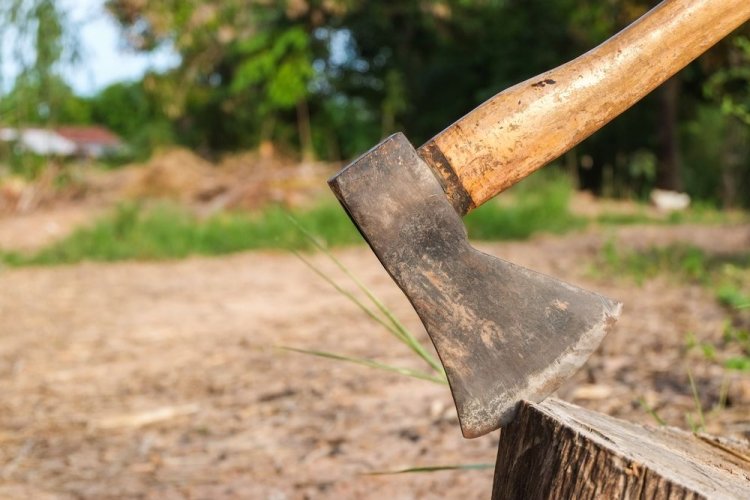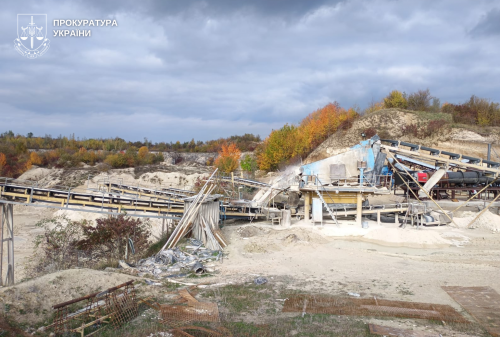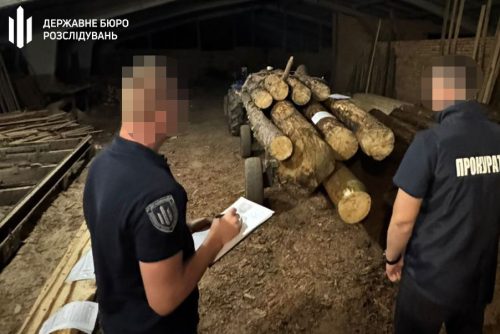In Ukraine, the initiative to increase the amount of felling, to provide the army and the population with firewood, has significant risks, because corruption and the lack of reliable mechanisms to protect old natural forests can lead to the loss of the most valuable natural treasures.
This was stated by Yehor Hrynyk, biologist of Ukrainian Nature Protection Group, reports Ukrainian Pravda. Life.
In recent months, the Ukrainian authorities have repeatedly announced plans to carry out more logging in forests, in particular the Minister of Environmental Protection Ruslan Strilets and the head of the State Forestry Agency Yuriy Bolokhovets .
Back in March, the Verkhovna Rada canceled the "season of silence" – the prohibition of some felling during the spring breeding season of animals in forests, which interfered with foresters. And the Ministry of Environment has prepared several draft resolutions that are planned to simplify the conduct of certain types of felling (in particular, sanitary ones).
"Some of this has already been rejected by the environmental community, and some of it will most likely be adopted," said Hrynyk.
The volume of harvesting has already increased in some areas. Thus, during May-July 2022, 169% of trees were felled in Odesa region, 126% in Chernivtsi, and 117% in Vinnytsia from the indicators of the same period in 2021.
Argument of the authorities regarding the need to increase the volume of felling:
- the economy is not going through the best of times, so increasing the volume of felling should keep it afloat;
- the need for wood increased, primarily for the army, as well as for heating;
- many old forests need "updating".
Rising the economy
According to many estimates, even before the war in Ukraine, some 30% of wood was cut down without any documents. That is, no taxes for harvesting and selling such wood went to the budgets.
"The process of selling white wood remains completely corrupt (low prices, kickbacks, etc.), which is also not very profitable for the state," he said.
The biologist added that in the conditions of war, it is necessary to pay maximum attention to transparency and to make white the wood that is already cut, and not to focus only on a serious increase in the volume of cutting
To do this, draft law No. 4197-d on the timber market must be adopted, and full and public traceability of every felled tree must be ensured.
"These data are already available, but the authorities are in no hurry to make them public," Hrynyk said.
It is also necessary to ensure the timely and high-quality publication of all documents for logging and to start reforming the eco-inspection by adopting draft law No. 3091.
The growing needs of the army and the population in wood
There is indeed a need for wood in Ukraine, but there are nuances:
- What exactly will be cut for firewood: old natural forests or artificial pine plantations together with plantations of alien trees such as acacia?
Hrynyk noted that the second option is better for nature. However, there are no legislative obstacles to cutting down the last old forests, which is already happening in many regions.
- The need for wood for the armed forces must be covered by felling in artificial forests, not in old natural ones.
In Ukraine, there are so-called military forestry farms that are subordinate to the Ministry of Defense. From April 2022, more than 25 thousand cubic meters of wood from such forests received certificates for export.
"Why do military forestry farms continue to sell wood abroad, instead of giving it to the needs of the Armed Forces?" emphasized the biologist.
Renewal of old forests
Due to large-scale logging, the majority of Ukrainian forests have long since passed from the category of "old and natural" to the category of artificial plantings, so-called monocultures.
"Those old natural forests that still remain are a treasure of the country, priceless from the point of view of nature protection and climate change prevention," Hrynyk emphasized.
Bolokhovets offered to take firewood in hard-to-reach areas in the mountains, swampy forests, because the forest there ages, dries up, dies, falls, rots.
"The Minister of Environmental Protection talks about the absurd renewal of forests. All this: a typical Soviet approach to nature as a "resource" that needs to be mastered. The desire to make money at the expense of the future of Ukrainians, he emphasized. – It is unlikely to help overcome the enemy. However, the negative can still be prevented. We need political will."
Earlier, EcoPolitic wrote, that the head of the State Forestry Agency Yuryi Bolokhovets said that Ukrainian forest farms are ready to provide the necessary amount of alternative fuel, in particular chips and firewood, without harming the forests.
As EcoPolitic previously reported, environmentalists criticized the decision of the Scientific and Technical Council of the Karmelyukovo Podillia National Nature Park, the only one in Vinnytsia, regarding setting felling limits.





